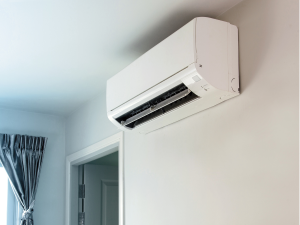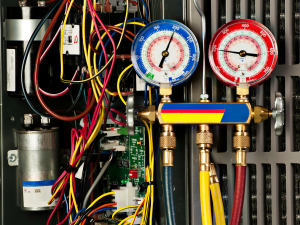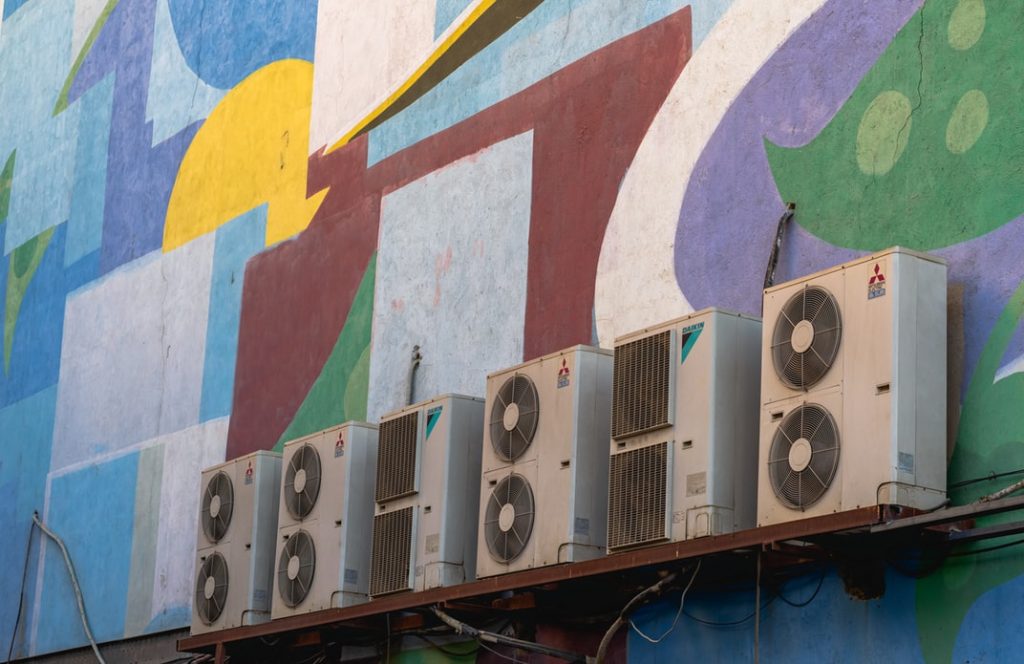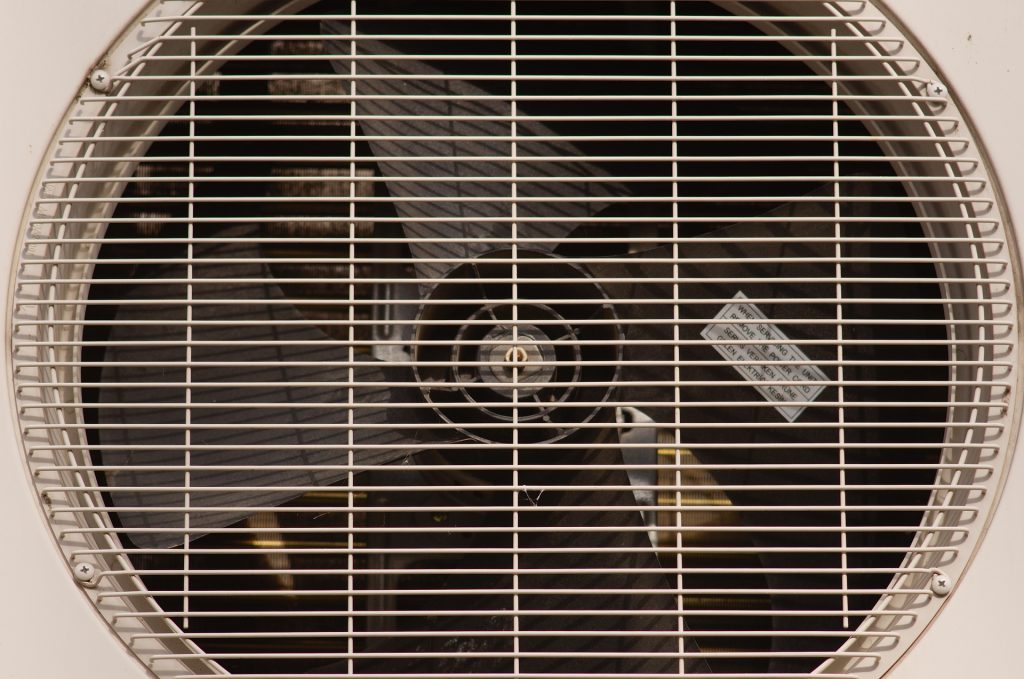Sizing an air conditioner is all about making sure your unit caters to your room size for air conditioning. It’s one of the best ways you can maximize your air conditioner’s efficiency.
“Undersized” and “Oversized” are some of the terms you’ll come across in this guide.
An undersized air conditioner: This is an air conditioner that is too small for the rooms or houses it’s supposed to operate in.
An oversized air conditioner: This is an air conditioner that is too large/powerful for the rooms or houses it’s supposed to operate in.
Why should I size my air conditioner?
Efficiency is the first point. In addition to that, your air conditioner’s size will also affect its lifespan and your comfortability. Allow us to explain.
Undersized air conditioners have to work harder to cool and maintain your rooms’ temperature- This, in turn, causes over-heating which negatively affects your air conditioner’s health. Moreover, you’ll also notice that your room isn’t as cool as it’s supposed to be (this can be very frustrating in the hot summers).
On the other hand, oversized air conditioners will outdo themselves and create a very uncomfortable indoor environment. Do you feel sticky when indoors? That is one of the side-effects of high humidity. Your oversized air conditioner is the culprit behind it.
Note: Most people go for large air conditioners thinking it will cool the air more and thus, create an enjoyable environment. However, they’re usually frustrated to end up with a sticky and uncomfortable indoor environment. What they don’t understand is that air conditioners lower indoor temperatures by absorbing both heat and humidity. Yes, an oversized air conditioner will cool the room much faster, but it won’t run long enough to dehumidify the air.
Are you unsure about the right air conditioner size for your home? Reach out to the experts on air conditioning in Phoenix.
BTU air conditioning room size
You’ve probably heard the word “BTU” at some point. If not, allow us to explain what it means, and it’s relation to measuring room size for air conditioning.
What is BTU?
BTU is the short form of “British Thermal Units.” Yes, it’s a unit of measurement that allows you to measure your air conditioner’s cooling ability. Scientifically stating, BTU is the measure of the amount of energy required to heat one pound of water by a single degree.
Your air conditioner’s power can be measured and stated in terms of BTUs.
So you’re probably trying to figure out how to measure room size for air conditioning. We’ve got you covered.
Air conditioning units BTUs and room size – what is the relation?
BTUs are directly proportional to the room’s size- The larger the room, the more powerful your air conditioner should be ( the higher the BTU rating).
The first step is measuring your room’s size in square feet. Simply measure the length and width in feet and multiply them to get the area.
Next, multiply the area by 25 to get the BTU rating that best suits the room.
For example, if your room is 10ft wide and 15ft long, the area is 150sq ft. To get the BTU rating, 150 ✕ 25 = 3750 BTUs.
BTU calculators
But of course, this calculation will only give you a rough estimate. For a more accurate BTU rating, we’d advise you to use a room-size air conditioner calculator known as the BTU Calculator.
BTU calculators take into consideration other factors like the number of windows in the room and the type of room. There are rooms like kitchens that produce more heat and need powerful air conditioners with higher BTU ratings.
Here are some additional factors considered when sizing an air conditioner for your house or room:
- The material the room is made from.
- Are their ceiling fans in the room? Ceiling fans will lower the BTU rating need for the room since they help in lowering room temperatures.
- Color of the ceiling: Darker ceilings will absorb more heat than brighter ones.
- The number of people in the room: Human beings produce heat to their near-by environment.
Read What Size Air Conditioner Do I Need? 4 Easy Steps to Find Out for more information on BTUs and air conditioning.
3 Signs of an undersized air conditioner
We talked about the effects of undersized air conditioners earlier on, the major one being reduced efficiency.
Now that you know how to size your room, go ahead, and calculate the rough estimate of the BTU rating required.
If you’re still unsure, below are some of the sure signs your air conditioner is too small for your room.
1. Your home isn’t as cool as it’s supposed to be
If your air conditioner is too small, this means it’s going to absorb less air for condensing and cooling. As a result, it’s going to be very difficult for it to effectively lower the room temperature and eventually get an optimal temperature balance (it’ll even be more difficult if it’s extremely hot outside- typical with most summers around here).
Your air conditioner is undersized if you find that you’re still feeling sticky even after your air conditioner has been running for hours. Stickiness is caused by high humidity plus hot air.
Note: If this is the case even after you’ve proven that your air conditioner is perfectly suited for your room, call an HVAC professional, there might be another underlying problem.
For more information on faulty air conditioners, read Air Conditioner Not Cooling? Try These Easy Steps.
2. Your air conditioner doesn’t automatically turn off
This is an issue for those with automatic air conditioning units. Automatic air conditioners operate using thermostats. Thermostats start by measuring the room temperature and comparing it with your preferred setting. If the temperatures are high, the thermostat turns on the air conditioner which absorbs air for cooling. Once the room temperatures have cooled below the preferred setting (optimal temperature), the thermostat takes note of this and turns off the air conditioner. It will only turn on the AC if the room temperatures rise again.
If your air conditioner isn’t turning off, then it’s having difficulties lowering the room temperature. Your air conditioner is undersized.
3. High electricity bills
You might be wondering, “Aren’t high electricity bills associated with oversized air conditioners?” That’s true, and we’ll get to that later.
Undersized air conditioners end up consuming a lot of electricity because their efficiency has been affected.
If your air conditioner is too small for your room, it’s going to work harder and longer than it normally would in a perfectly sized room.
Note: Some people aren’t even aware of how much electricity their air conditioner is supposed to consume. Sure, there isn’t an exact figure for all air conditioners, however, you should know the average energy consumption rate of your air conditioner’s brand and model. Please check in with the manufacturer, you may have been spending more on electricity bills than you should be.
For more on this, read How much power does an air conditioner use?
5 Signs of an oversized air conditioner
Prove me wrong, but your house is the comfiest place to be because of your air conditioner.
Some of us (knowingly or unknowingly) went for oversized air conditioners. As mentioned earlier, some do this because they believe choosing “overkill” air conditioners will give them all the coolness they need- Only to end up with dry and disturbing air.
Below are signs to look for if you aren’t sure if your air conditioner is oversized.
1. Noticeably short cooling cycles
What is an air conditioner cooling cycle?
A cooling cycle is when your air conditioner is up and running, actively absorbing, and cooling warm air- It’s a thing in automatic air conditioners.
Your thermostat notes that the room temperatures are high and turns on the air conditioner for cooling. The air conditioner then gets down to work and cools the room temperature until they drop to optimal reading. The thermostat takes note of this and turns off the air conditioner.
Some clients think that very short cooling cycles are a good thing because the air conditioner is cooling the air very fast. These people are usually shocked to find themselves with broken air conditioners a few months later.
Really short cooling cycles strain your air conditioner.
2. High electricity bills
Not only do larger air conditioners consume more energy, but the short cycles are also worsening the situation. Short cooling cycles mean your air conditioner needs to restart after every few minutes, as a result, more energy intake.
3. Very humid indoor air
Air conditioners work by absorbing and cooling both hot air and moisture from your indoor environment. If your air conditioner is oversized, it will have short cooling cycles that won’t give it enough time to lower the indoor humidity. All you’ll be left with is cool, but wet air. The next thing you’re probably going to encounter is mold build-up usually accompanied by respiratory problems.
4. Very loud air conditioner
Modern air conditioners are designed to be silent and unnoticed for home and office use. If your air conditioner is noticeably loud (loud enough to distract you), then there is a chance it’s oversized. Oversized air conditioners end up sucking in more air than your air ducts can handle and thus, the loud noise.
Note: Noisy or loud air conditioners can be a sign of other problems. You’re advised to call in your HVAC professional if your air conditioner is suddenly producing scary, weird, or new noises that weren’t there before.
Not sure which air conditioner noises you should be on the lookout for? Read Air Conditioner Loud Buzzing Noise: What To Do.
Have some plumbing related questions? Check out Hot Water Heater Not Working? Here’s What to Do and our water softener replacement page.
Frequently Asked Questions
What room size is a 1-ton AC enough for?
A 1-ton air conditioner is capable of effectively cooling a room that is roughly 300 square feet or less. This depends on several other factors, though, so be sure to do the proper measurements (or contact a professional) before relying on this guideline alone.
How do you calculate the size of a room?
Calculating a room’s square footage is quite easy if the space is rectangular or square. Just measure the width and length, then multiply the two. If the room is an odd shape, divide it into rectangles or triangles and combine the measurements of those smaller polygons.














